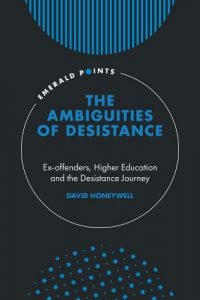Media depictions of prison: reflections on the C4 drama, ‘Screw’
Written by David Honeywell, Research Assistant, PROSPECT project
*Please be aware that this blog post refers to a recent Channel 4 drama series that aired in January, 2022 called ‘Screw’, and may include spoilers.
There is a myriad of texts, dramas and movies about prisoner accounts of life behind bars, and no drama captured this better than the recent prison drama ‘Time’ which I wrote about in December 2021 with my colleague and friend, Rebecca. Yet there are very few depictions of prison life from the perspective of prison officers or prison governors. The most famous true-life biopic that springs to mind is ‘Brubraker’ from the 1970s whereby a newly appointed prison governor posed as an inmate to see first-hand the injustices, corruption, violence and abuse within the very prison he was set to run. The film was based on the real-life experiences of warden Thomas Murton, co-author with Joe Hyams of the 1969 book, Accomplices to the Crime.
Here in the UK, there have been written accounts from prison officer perspectives such as Strangeways by Neil Samworth, a prison officer who after 11 years working in Strangeways prison (now HMP Manchester) suffered PTSD. Also, David Berridge’s Inside Parkhurst – one of Britain’s most infamous and violent prisons, and Ronnie Thompson’s (a pseudonym) non-fiction book Screwed: The truth about life as a prison officer.
But apart from a handful of documentaries, there are no accurate prison officer dramas that come to mind. Following the incredibly accurate prison drama series ‘Time’ I doubted anything else could match its authenticity! That was until the drama series ‘Screw’ was aired on Channel 4 which was equally as capturing as ‘Time’, yet honed in on the prison officer culture rather than the prisoner culture.
Although it focused on the prison officer culture, ‘Screw’ still followed the daily experiences of some key prisoner characters, as ‘Time’ did with some of the prison staff. Yet despite the similarities between these two dramas there was a clear difference in how the prison environment was portrayed overall. Described as a ‘dark comedy’, ‘Screw’ ingeniously created some light-hearted moments within a very dark and traumatic place.
The series starts with trainee prison officer, Rose entering the prison for her first day at work on C Wing of the fictitious HMP Long Marsh. Rose seems desperate to prove her worth as a prison officer to her continually dismissive boss, Leigh and it doesn’t take long for prisoners to pick up on her naivety. Rose is soon dragged into the world of corruption and bribery without any chance of escape.
Following a serious incident, the prison goes into total lockdown which creates enormous backlash from the prisoners. After three days of lockdown, Leigh is frustrated by the stupidity and arrogance of a deluded prison manager, Simon Ray. Despite a serious suicide attempt the previous night he claims lockdown is working by reducing violence. The impact of lockdown is having a huge impact on the prisoners’ mental health and despite the prison reaching crisis point in an under-resourced and chaotic system, Ray insists on keeping the men locked in their cells indefinitely. It demonstrates some of the most inhumane aspects of prison life and sadly reminds us of recent attitudes towards prisoners being locked in their cells for days on end during the recent prison lockdown during the coronavirus pandemic (see the HM Inspectorate of Prisons thematic review).
The impact of lockdown on mental health leads to one of the most interesting episodes for me as a researcher on a prison suicide project as it makes several key references that are relevant to our study, PROSPECT. The staff are told to go and talk to prisoners who are deemed at risk and instructed to update files on prisoners who were on ACCT (Assessment, Care in Custody and Teamwork) documents.
Interestingly, only one of the officers knew what ACCT meant, and the comments within ACCT plans where prison staff were supposedly checking on suicidal prisoners were excruciatingly painful to hear. Much to the amusement of one of the more bigoted prison officers, Leigh read out some of the staff comments made during night checks: ‘asleep I think’; ‘eating crisps/seems happy enough’; and ‘still alive’. Sadly, this highlights the more worrying aspects of a prison officer culture that is understaffed and overstretched, and not trained in mental health, but it also emphasises some of the unacceptable attitudes by some prison staff.
Leigh, the senior officer, has much more empathy for prisoners, so much so she even occupies an unused cell a night, which was later discovered by bewildered colleagues. It transpired that she had a personal connection to prison. Leigh’s approach towards prisoners is that ‘prison is punishment not for punishment’ and their loss of liberty means they are already being punished. Her view is that the role of the prison officer is to look after prisoners and help with their rehabilitation. In contrast, there are the hard-line prison officers who warn newbie, Rose, ‘not to give any prisoner an inch’, and offers viewers a real understanding of the different views held by prison staff.
It is a superbly written drama series that has elements of comedy, but also some very dark and sinister aspects too. While ‘Screw’ shows some amusing antics prisoners get up to and their quirky personalities, it unapologetically reminds us of some very disturbing and real aspects of prison life.
NOTE: For this unaware of where the term ‘screw’ originates from, it comes from the bygone years of when prisoners were made to use a crank for punishment. It served no purpose than to inconvenience and make life difficult for them. They had to turn a pointless handle 15000 times and to make the handle harder to turn, the prison officer would tighten a ‘screw’.
About Dr Dave Honeywell:

Dr Dave Honeywell
Dr David Honeywell is a Lived Experience Research Assistant at the University of Manchester currently working on a project on prison suicide. David began his academic career in 2013 at the University of York where he worked as an Associate Criminology Lecturer alongside studying for a PhD. He has since taught criminology at Leeds Beckett University and the universities of Durham and Hull. In 2018, he completed his PhD in sociology about ex-prisoners and the transformation of self through higher education which was inspired by his own personal journey as an ex- prisoner who escaped a dysfunctional life through learning. While in prison in the 1990’s he gained an Open University qualification which later led to degrees in criminology, social research methods and sociology. After a 10-year break from study he returned to university following the publication of his autobiography Never Ending Circles which was inspired by the aftermath of the 2011 London riots. His book led to an ongoing career as a guest speaker and visiting lecturer on the university circuit. David has recently published a monograph ‘The Ambiguities of Desistance’ from his PhD study. Further details can be found here: https://books.emeraldinsight.com/page/detail/The-Ambiguities-of-Desistance/?k=9781839827877

